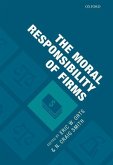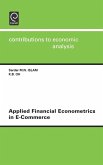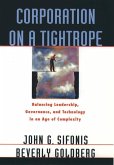The book covers a fairly broad set of management, organization and working life aspects are addressed, including HRM themes and different forms of control including client control and regulation of identity. From a perspective emphasizing the ambiguity of social and business life, rhetoric, symbolism, image, politics of knowledge claims, identity and identity work are viewed as crucial for the understanding and management of professional/knowledge work and organizations. The book is provocative and challenges key assumptions in dominant knowledge and organization thinking, suggesting a novel theoretical approach. The book is intended for third year level undergraduates upwards, and aims to say things also of relevance for scholars. It mixes textbook and research ambitions. As a (moderately) constructivist text with a relatively broad focus, the book may have some potential as a text complementing more conventional textbooks also in general organization and management courses.
This book addresses the concept of knowledge, and its use in the contexts of work and organizations. It provides a critical understanding of current approaches to knowledge management, organization and the 'knowledge economy'. The author describes a number of cases of 'knowledge intensive firms', including IT firms, management consultancy firms, advertising agencies and life science companies. He emphasizes the ambiguity of knowledge in the input, process, and output of professional work, and suggests that we should be careful in assuming too much about the nature, role, and effects of 'knowledge' in business life. Instead, we should understand the constructed nature of knowledge and scrutinize knowledge claims carefully. Alvesson looks at several aspects of management and working life, including human resource management issues, client control and the regulation of identity. Rhetoric, symbolism, image, the politics of knowledge claims, and identity are all shown to be crucial for understanding the management of 'knowledge intensive firms'. By challenging key assumptions in current thinking about knowledge and organization, a novel theoretical approach is suggested. The book will be of interest to business and management academics concerned with issues of knowledge and organization and will serve as supplementary reading for graduate and final year undergraduate business and management students.
This book addresses the concept of knowledge, and its use in the contexts of work and organizations. It provides a critical understanding of current approaches to knowledge management, organization and the 'knowledge economy'. The author describes a number of cases of 'knowledge intensive firms', including IT firms, management consultancy firms, advertising agencies and life science companies. He emphasizes the ambiguity of knowledge in the input, process, and output of professional work, and suggests that we should be careful in assuming too much about the nature, role, and effects of 'knowledge' in business life. Instead, we should understand the constructed nature of knowledge and scrutinize knowledge claims carefully. Alvesson looks at several aspects of management and working life, including human resource management issues, client control and the regulation of identity. Rhetoric, symbolism, image, the politics of knowledge claims, and identity are all shown to be crucial for understanding the management of 'knowledge intensive firms'. By challenging key assumptions in current thinking about knowledge and organization, a novel theoretical approach is suggested. The book will be of interest to business and management academics concerned with issues of knowledge and organization and will serve as supplementary reading for graduate and final year undergraduate business and management students.








